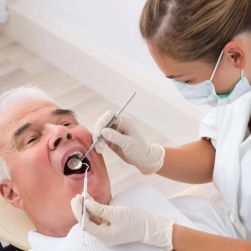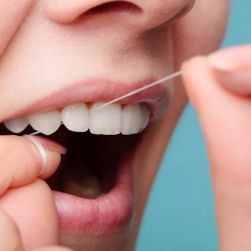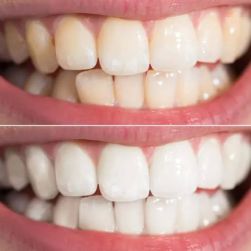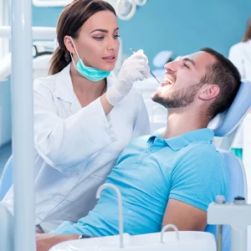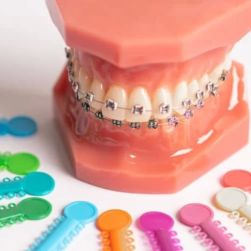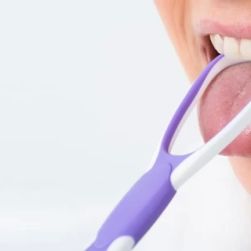As we age, many aspects of our health require extra attention, and oral health is no exception. I’ve always been aware of how important dental care is, but it wasn’t until my elderly parents began to struggle with tooth loss that I truly understood the challenges older adults face with their teeth. Over time, I learned that preventing tooth loss in older adults is possible, but it requires proactive care, good habits, and sometimes, professional help. Here, I’ll share what I’ve learned about keeping teeth strong and healthy as we get older.
1. The Importance of Regular Dental Check-ups for Seniors
One of the key factors in preventing tooth loss in older adults is regular dental check-ups. In fact, I can’t stress enough how crucial it is to visit the dentist at least twice a year. During these visits, your dentist can catch early signs of gum disease, cavities, or other issues that could eventually lead to tooth loss. Unfortunately, many older adults tend to avoid the dentist due to fear, cost, or simply neglecting oral care as they age.
When I first encouraged my parents to visit the dentist regularly, they were reluctant, but over time they realized how much easier it was to maintain healthy teeth when issues were caught early. Routine dental visits help identify any potential problems early, allowing for preventive treatments or simple fixes that can avoid costly and painful procedures later on. Professional cleanings are also essential to remove plaque and tartar that regular brushing can’t tackle, which can prevent gum disease and tooth decay.
2. The Role of Diet in Preventing Tooth Loss
Diet plays a significant role in oral health, and I’ve seen firsthand how making small adjustments can lead to big improvements. Older adults often face dietary challenges due to changes in taste, chewing ability, and digestive health. However, the right foods can help maintain strong teeth and gums.
Calcium and vitamin D are crucial for maintaining healthy teeth and bones. Dairy products like milk, yogurt, and cheese are excellent sources of calcium, while vitamin D can be obtained from fortified foods, eggs, and sunlight exposure. My father, for instance, struggled with low calcium levels for years, which led to weakened bones and teeth. By incorporating more calcium-rich foods into his diet, along with taking a vitamin D supplement, he saw improvements in his overall oral health.
Additionally, crunchy fruits and vegetables like apples, carrots, and celery can help naturally clean teeth while also stimulating saliva production, which helps protect teeth from decay. I also recommend staying away from sugary and acidic foods, which can erode tooth enamel over time. For older adults with dentures or dental implants, avoiding sticky or hard foods can prevent discomfort and potential damage.
3. Maintaining Good Oral Hygiene Practices
Maintaining good oral hygiene is essential at any age, but it becomes even more important as we get older. The good news is that good oral hygiene doesn’t require much time or effort, but consistency is key. I’ve found that many older adults, including my parents, underestimate how essential it is to brush and floss regularly. Brushing twice a day with fluoride toothpaste helps remove plaque, the sticky film that forms on teeth, which can contribute to cavities and gum disease. I made sure my parents knew that using a soft-bristled toothbrush is gentler on their gums, which tend to become more sensitive as we age.
Flossing is just as important, though many seniors tend to skip it, often due to limited dexterity or lack of knowledge about its benefits. Flossing helps remove food particles and plaque between teeth and along the gum line, areas that a toothbrush can’t reach. To make flossing easier for older adults, I recommend using floss holders or dental tools specifically designed for people with arthritis or limited hand mobility.
4. Protecting Teeth from Injury and Wear
Older adults are at a higher risk of tooth injury and wear, particularly if they suffer from issues like dry mouth, which becomes more common with age. Dry mouth can lead to cavities and gum disease since saliva helps neutralize acids and wash away food particles. To combat dry mouth, my mom started drinking water more regularly and chewing sugar-free gum, which helped stimulate saliva production.
Additionally, protecting your teeth from accidental injury is important, especially if you participate in activities that can put your teeth at risk, such as sports. For older adults with dentures or implants, it’s important to wear a protective mouthguard during physical activities to avoid damage to dental work. I also suggest avoiding using teeth as tools (e.g., to open bottles) to prevent unnecessary wear and tear.
5. The Impact of Smoking and Alcohol on Oral Health
Smoking and excessive alcohol consumption can significantly impact the health of your teeth and gums. My father, a long-time smoker, suffered from gum disease and tooth loss, which was worsened by his smoking habits. Smoking not only contributes to gum disease but also stains teeth and reduces the ability of the gums to heal after dental procedures.
Alcohol, particularly in large quantities, can also contribute to oral health problems by causing dry mouth and increasing the risk of mouth infections. For older adults, quitting smoking or reducing alcohol consumption can have a profound impact on overall oral health. I strongly encourage seniors to seek professional help to quit smoking or manage alcohol consumption in a way that doesn’t jeopardize their dental health.
6. The Benefits of Dental Products for Older Adults
As we age, it’s natural for our oral health needs to change. For seniors, there are many specialized dental products available that can help maintain a healthy mouth. For example, electric toothbrushes with timers can be a great tool for those with limited dexterity, ensuring that they brush for the recommended two minutes. My mother found that switching to an electric toothbrush made her brushing routine more effective and less tiring.
For those with dentures, there are adhesive products that can help keep dentures securely in place, providing comfort and confidence. Additionally, using mouthwash designed for seniors can help kill bacteria, reduce plaque buildup, and maintain fresh breath. Many seniors also benefit from fluoride treatments to strengthen enamel and reduce the risk of tooth decay.
At Dentistry Toothtruth, we understand the unique oral health needs of older adults, and we’re here to offer professional guidance and care. If you or a loved one are looking for expert advice or dental treatments tailored to seniors, feel free to reach out to us for more information.

